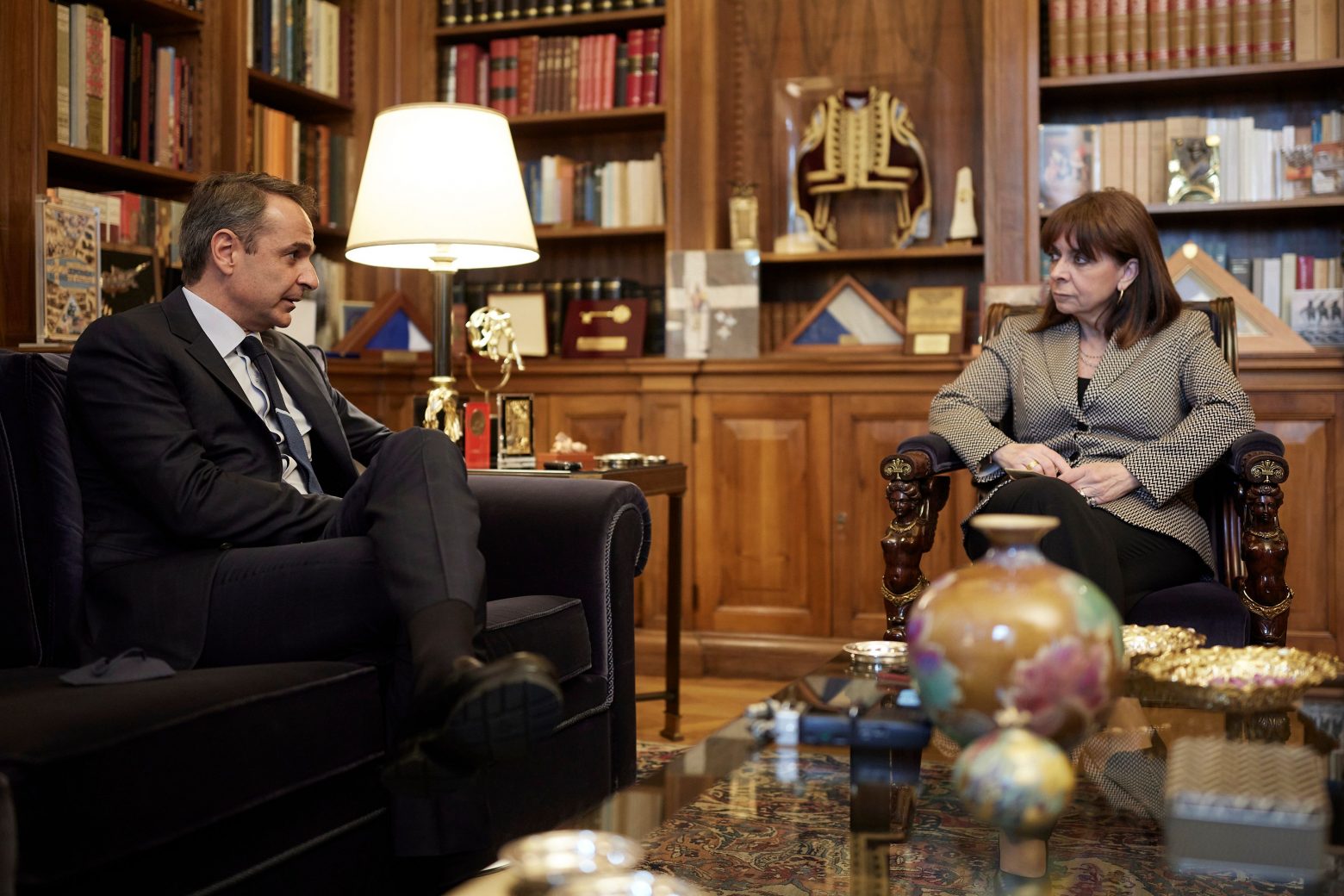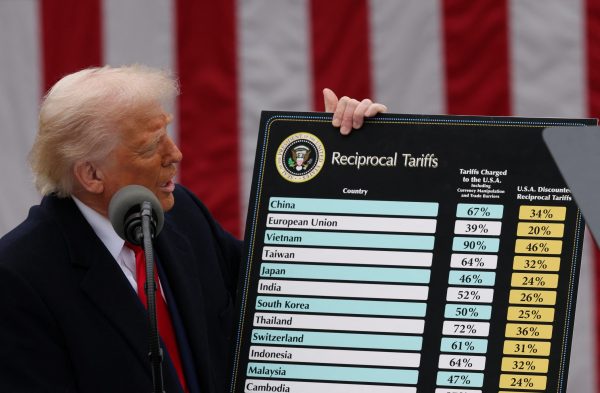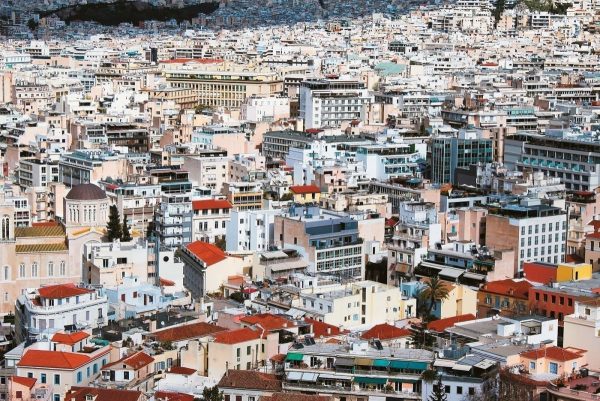
Kyriakos Mitsotakis spoke about a period of prolonged uncertainty and instability in his meeting with Katerina Sakellaropoulou, talking about inflation rates that we are facing and which we have not seen in 40 years.
The dialogue of the Prime Minister Kyriakos Mitsotakis with the President of the Republic Katerina Sakellaropoulou in detail at the beginning of their meeting:
We are doing what we can
K. Mitsotakis: Since we last met, Madam President, there have been many, unfortunately extremely unpleasant, developments on the Ukrainian front as a result of the Russian invasion. There does not seem to be much optimism at the moment about the end of hostilities and we may all have to adjust to a period of prolonged uncertainty and instability.
The impact on the economy is already visible across Europe and in the US, all over the world, I would say. We are facing inflation rates that we have not seen in 40 years. The root cause of the crisis, as we have explained many times, is primarily the rise in gas prices, which, unfortunately, also entails electricity prices.
“The Greek government has done everything in its power to support households and businesses in this difficult time. I had the opportunity, relatively recently, to announce a new measure of additional benefits, support to the electricity bills, support of our most vulnerable fellow citizens with an extraordinary allowance, which will be given in April, amounting to 200 euros, a series of interventions concerning fuel, the primary sector, where we are facing very large increases in both fertilizers and animal feed – and we must support Greek livestock at this stage.
“And of course from May 1 we will have a significant increase in the minimum wage, as I have promised, we will make the specific announcements before the end of the month, obviously when we have taken into account all the proposals of experts, but of course the amount inflation, which should also be taken into account in this decision that we will take.
Read also – Eurozone: Inflation jumps to 7.5% in March – Greece to 8%
There are no shortages in the market
At the same time, Madam President, I want to assure you that there is no shortage in the Greek market, because a lot is being heard, the market is working well, but we will be relentless in the face of any scandal. We will exhaust the strictness of the law. Very high fines are already being imposed on those who see in this crisis an opportunity for temporary enrichment. These phenomena will not be tolerated.
We will all give our support. The state, the citizens – their disposable income is already being tested – and I have a full sense that this crisis has hit us at a time when, unfortunately, wages in our country are still low and our minds are first and foremost on those paid the least, to low-income retirees, and especially people living on rent, who do not have the means to at least have the security of individual property, we need to support them.
But businesses, which have been heavily backed by the government during the pandemic, must also give their support, which is why I have made it very clear that any profits from the electricity market must be returned to the citizens through an extraordinary tax of 90%.
We expect from the Energy Regulatory Authority, which is the only one that fully knows how the market operates, its proposals and suggestions, within the next month.
The energy transition
Finally, let me tell you that this debate brings back to the table the need for an energy transition. The cheapest form of energy at the moment is green energy – the energy produced by the sun and the sea – and we need to further accelerate the penetration of renewable energy sources on a large scale, but also on a smaller scale.
Businesses can also install photovoltaics to meet their own needs and this should be done very quickly and bypassing – dare I say by sweeping away – any bureaucratic hurdles. Equally much emphasis, of course, should be given to the cheapest form of energy of all, which is the one that is never consumed, and I am referring to energy saving programs.
“Our concern should be how to reduce the increase of electricity bills and therefore initiatives, such as the programs of “SAVE , the replacement of air conditioners, I think at this time have their own special role , their own special place.
We are saving strength – Tourism will go well
“The government will be close to the people, as it has been throughout the difficulties that have arisen for us – and they were not few – and of course the citizens should know that, as we did in the pandemic, where despite the urgings of the opposition at the time. to give it all at a given time, we need to know that we are holding forces, we are holding reserves, because we do not know very simply how long this crisis will last.
“The very encouraging thing, to conclude with positive news, is that our tourism seems to be going very well, we do not seem to be particularly affected by the developments and I am optimistic that we will have a good tourist season without the pandemic restrictions, which “Unfortunately, they have held us back for the last two years.”
Use all the tools because difficult days are coming
K. Sakellaropoulou: “Mr. President, unfortunately one crisis follows another and Russia’s invasion of Ukraine, in addition to the tragic consequences of the humanitarian crisis it has created – a people suddenly become refugees, four, five million have already moved – brings also the consequences of the economic crisis precisely through the energy crisis.
“And you are right there, I had the opportunity to see it and in the discussions I had in Portugal, a solution must be found, especially at the level of the European Union, let ‘s see energy supply as an opportunity for the Member States to become autonomous or to become independent. even more. From there and beyond, of course, to make the most of the tools that exist, in order to strengthen mainly the vulnerable, because they are always called to pay the highest price, and of course the productive sector.
“Solidarity here must prevail in any way we can think, because difficult days are coming, but we wish we could all manage them in the best way.”
Latest News

Trump Tariffs Jeopardize Growth: Piraeus Chamber of Commerce
The tariffs, aimed at reducing the U.S. trade deficit, are expected to have both direct and indirect effects on the European economy

EU Condemns Trump Tariffs, Prepares to Retaliate
As tensions escalate, the EU is expected to continue negotiations with Washington while preparing for potential economic retaliation.

The Likely Impact of Trump Tariffs on Europe and Greece
Trump tariffs are expected to negatively affect economic growth in the Eurozone while Greece's exports could take a hit.

Motor Oil Results for 2024: Adjusted EBITDA of 995 mln€; Proposed Dividend of 1.4€ Per Share
Adjusted EBITDA for 2024 was down 33% yoy. The adjusted profit after tax for 2024 stood at 504 million euros, a 43% decrease from the previous year

Cost of Living: Why Greece’s 3% Inflation Is Raising Alarm
Greece appears to be in a more difficult position when it comes to price hikes, just as we enter the era of Trump’s tariffs.

Fitch Ratings Upgrades the Four Greek Systemic Banks
NBG’s upgrade reflects the bank’s ongoing improvements in its credit profile, Fitch notes in its report, including strong profitability, a reduction in non-performing exposures (NPEs), and lower credit losses

Trump to Announce Sweeping New Tariffs Wednesday, Global Retaliation Expected
With Trump's announcement just hours away, markets, businesses, and foreign governments are bracing for the fallout of one of the most aggressive shifts in U.S. trade policy in decades.

Inflation in Greece at 3.1% in March, Eurostat Reports
Average inflation in the eurozone settled at 2.2%, compared to 2.3% in February

Greece’s Unemployment Rate Drops to 8.6% in February
Despite the overall decline, unemployment remains higher among women and young people.

Jerry Kalogiratos Highlights Key Role of Energy Transition and Data Demand in LNG Outlook
Energy transition and the prospects of LNG were discussed at Capital Link’s 19th Annual International Maritime Forum, during a panel discussion with Jerry Kalogiratos (Capital Clean Energy Carriers Corp.)
























![ΕΛΣΤΑΤ: Αυξήθηκε η οικοδομική δραστηριότητα κατά 15,6% το Δεκέμβριο [πίνακες]](https://www.ot.gr/wp-content/uploads/2025/03/DSC9655-2-1024x569-1-90x90.jpg)
















 Αριθμός Πιστοποίησης
Αριθμός Πιστοποίησης